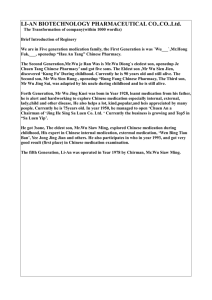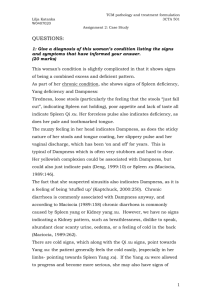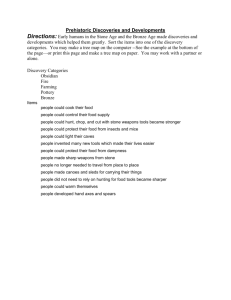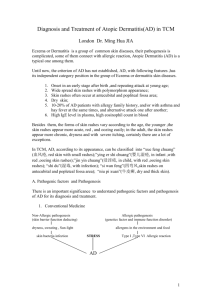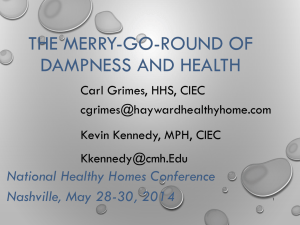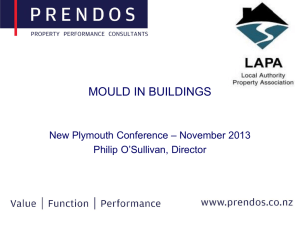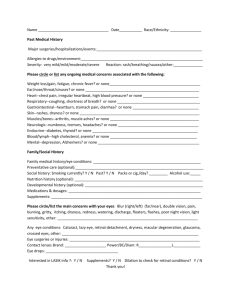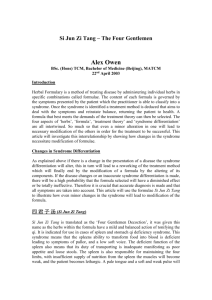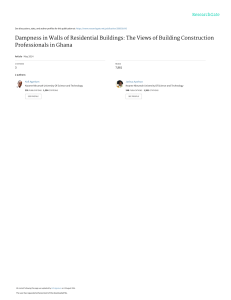Dampness: wet, heavy, slow, Yin - CSB | SJU Employees Personal
advertisement
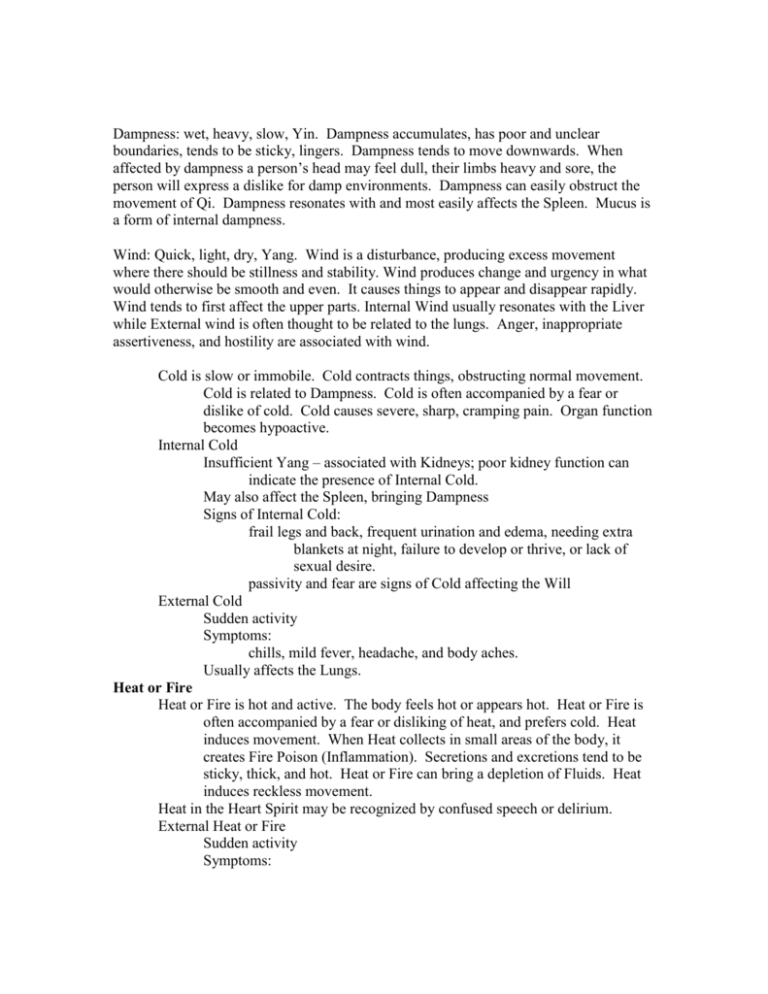
Dampness: wet, heavy, slow, Yin. Dampness accumulates, has poor and unclear boundaries, tends to be sticky, lingers. Dampness tends to move downwards. When affected by dampness a person’s head may feel dull, their limbs heavy and sore, the person will express a dislike for damp environments. Dampness can easily obstruct the movement of Qi. Dampness resonates with and most easily affects the Spleen. Mucus is a form of internal dampness. Wind: Quick, light, dry, Yang. Wind is a disturbance, producing excess movement where there should be stillness and stability. Wind produces change and urgency in what would otherwise be smooth and even. It causes things to appear and disappear rapidly. Wind tends to first affect the upper parts. Internal Wind usually resonates with the Liver while External wind is often thought to be related to the lungs. Anger, inappropriate assertiveness, and hostility are associated with wind. Cold is slow or immobile. Cold contracts things, obstructing normal movement. Cold is related to Dampness. Cold is often accompanied by a fear or dislike of cold. Cold causes severe, sharp, cramping pain. Organ function becomes hypoactive. Internal Cold Insufficient Yang – associated with Kidneys; poor kidney function can indicate the presence of Internal Cold. May also affect the Spleen, bringing Dampness Signs of Internal Cold: frail legs and back, frequent urination and edema, needing extra blankets at night, failure to develop or thrive, or lack of sexual desire. passivity and fear are signs of Cold affecting the Will External Cold Sudden activity Symptoms: chills, mild fever, headache, and body aches. Usually affects the Lungs. Heat or Fire Heat or Fire is hot and active. The body feels hot or appears hot. Heat or Fire is often accompanied by a fear or disliking of heat, and prefers cold. Heat induces movement. When Heat collects in small areas of the body, it creates Fire Poison (Inflammation). Secretions and excretions tend to be sticky, thick, and hot. Heat or Fire can bring a depletion of Fluids. Heat induces reckless movement. Heat in the Heart Spirit may be recognized by confused speech or delirium. External Heat or Fire Sudden activity Symptoms: High fever, headache, swollen and sore throat, dry mouth, great thirst, occasional bloody sputum, skin eruptions, irritability or delirium. Internal Heat or Fire Comes from disharmonies of the Yin or Yang; it will be discussed later. Dryness and Summer Heat The two are often put together because they are so similar; consider them on a continuum, with the dryness end on one end with dehydration characteristics, and the summer heat with hotness and dryness. Dryness interferes with the circulation of the lungs, and has symptoms of phlegm, thirst, bloody nose, chest pain, and body aches. Summer heat is only a result from external exposure, caused by exposure to extreme heat. Symptoms are high fever and heavy sweating. The Seven Emotions Elation, Anger, Sadness, Grief, Worry, Fear and Fright Emotional excess or insufficiency acts on the Qi and the other fundamental textures. Correlate with the five Yin Organs: Worry with the Spleen Anger with the Liver Fear and Fright with the Kidneys Elation with the Heart Sadness and Grief with the Lungs Way of Life Diet Irregularity in quantity or quality of food, or in time of eating can disrupt bodily harmony. Insufficient food or lack of proper food can mean that insufficient raw material reaches the Spleen, causing Deficient Qi and Blood. Excess food that obstructs the Stomach’s ripening and the Spleen’s transforming is called Stagnant Food, and may lead to distension, sour belching, or diarrhea. Sexual Activity Because sexuality has an intimate relationship to reproduction, its roots lie the Kidney’s Essence and sexual dysfunction can be a sign of Kidney disharmony. Sexuality, especially with its relationship to sensuality is modulated by all Organs. Disharmonious sexuality can lead to disharmony or be a symptom of Kidney Essence disharmony. Physical Activity The category of physical activity includes general life activity. All life activity should point toward the goal of living in harmonious balance with the seasons and one’s own constitution and stage of life. Physical activity is important to harmonize the flow of Qi and Blood and to develop strength in the body; excessive labor is damaging though. An inappropriate lifestyle accompanies disharmony. Miscellaneous Factors These are neither internal nor external. Examples are burns, bites, parasites, and trauma; sudden easily identifiable conditions and proximal causes of disease.
